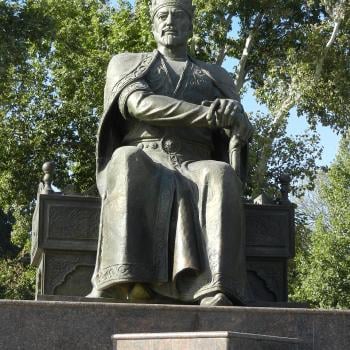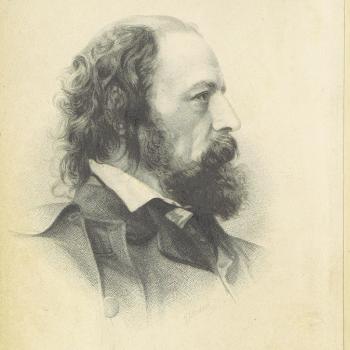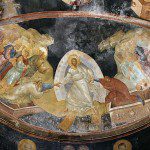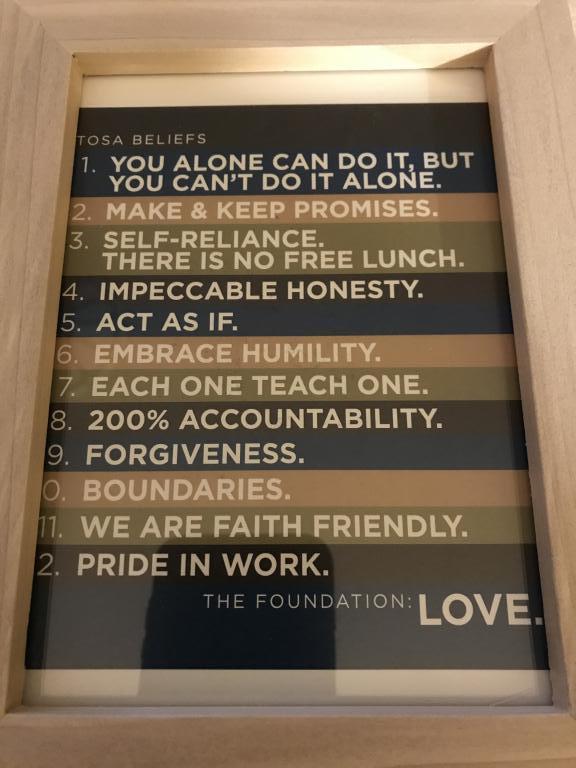
I’m pleased to call your attention to a new entry on the blog of the Interpreter Foundation. It’s entitled “For Misfit Members and Those Who Love Them: Reflections on Oneness from a Village for the Homeless,” and it was written by my energetic and visionary friend Joseph Grenny. I commend it to your notice. (The same essay also appeared a few days ago, in a very slightly different form, in Meridian Magazine.)

I didn’t do very much yesterday to celebrate Independence Day. For one thing, I contracted a bad and very persistent cold at the end of our filming expedition to western Missouri a couple of weeks ago, and I haven’t been feeling well. I think I’m finally beginning to come out of it, but I still feel substandard even today. For another, we didn’t have any little children around — one portion of my descendants is down in Peru for the rest of the month; another is located across the continent — and fireworks aren’t remotely as fun without kids shrieking with astonished delight, running around with sparklers, and enjoying unhealthy holiday food.
But I found myself thinking yesterday. (I like to think at least once per month — if nothing else, just to avoid atrophy in the relevant muscle.) I was thinking about the difference, as I see it, between nationalism and patriotism.
At least as I use the terms, nationalism has a tribal element to it. My tribe must prosper. In a competition, my tribe must prevail. Because it’s my nation, my tribe. It has little to do with principle or ideas. Rather, it’s something like choosing to cheer for the Dodgers or the Trailblazers or the Broncos or (horrible thought!) the San Francisco Giants or the New York Yankees. Objectively, none of these teams stands for any particular ideal or idea. None of them really represents truth or virtue or anything else, except the place where they play their home games. (Certainly the Yankees and the Giants don’t.) And, for what it’s worth, during the offseason many of their players may not even live in the same state as their supportive fans do.
Many evils have been done in the name of nationalism, many of them as part of tribal or ethnic violence (e.g., in the Balkans, in Rwanda, and in much of Europe during the 1930s and 1940s).
Of course, nationalism isn’t always wrong or toxic. And there is a strong element of nationalism, of sheer national pride, in our celebrations of the Fourth of July. We’re justly proud of our country’s history, its military victories and heroes, its natural beauties and scientific accomplishments.
However, in my mind patriotism tends on the whole to be a rather more gentle and more principled thing than nationalism — though the line between the two is often unclear.
Here’s one way, perhaps, of seeing the difference: In April 1816, after he had successfully completed his assigned mission of achieving a peace treaty on behalf of the United States with Algeria, Commodore Stephan Decatur returned home a hero. Famously, he was honored at a banquet at which he raised his glass for a toast and said:
“Our country! In her intercourse with foreign nations may she always be in the right; but our country, right or wrong!”
He’s often cited, a bit less accurately, as saying “My country, right or wrong.” And, as such, it’s a usefully concise expression of nationalism.
Now, of course, it’s very rare, even for the most enthusiastic citizens of the very best countries, to be equally enthusiastic or equally positive about every one of their government’s policies, to agree with every position of every leader. And yet no reasonable person would suggest withholding allegiance over relatively slight disagreements.
Surely, though, there must be lines that morally serious persons cannot cross. If your government begins to engage in genocide or to put people in labor camps or even extermination camps, or to launch an unproved war of conquest against another country, nationalism might suggest supporting such things on the principle of “My country, right or wrong.”
Patriotism, however, might well counsel opposition, refusal to participate, even (in extreme cases) rebellion. In 1790, the great Anglo-Irish member of the British Parliament Edmund Burke — often regarded by British and American conservative thinkers as one of the founders of the conservative political tradition in the English-speaking world — published a famous little book titled Reflections on the Revolution in France that, among many other things, said,
“To make us love our country, our country ought to be lovely.”
To love America patriotically is to love it for what it stands for. It is the first nation to have been founded on the basis of shared ideas rather than on ethnicity, or common history, or merely geographical contiguity. We should love it for its brilliant scheme of representative democracy and the balance of separated powers, for its Constitution, for that Constitution’s Bill of Rights. We should love it for its record of magnanimity in treating defeated adversaries (e.g., during Reconstruction and via the Marshall Plan and General Douglas MacArthur’s administration of postwar Japan).
Obviously, America isn’t and hasn’t been perfect. At times, indeed, we’ve been very far from perfect. Slavery, for example, remains a terrible blot on our history. Our treatment of native Americans has often been abominable. But, on the whole, it’s been a remarkably good history. Certainly it has been so by world-historical standards. And, in our country, the 1853 declaration of the abolitionist minister Theodore Parker — later popularized by the Rev. Dr. Martin Luther King, Jr. — has proven true:
“The arc of the moral universe is long, but it bends toward justice.”
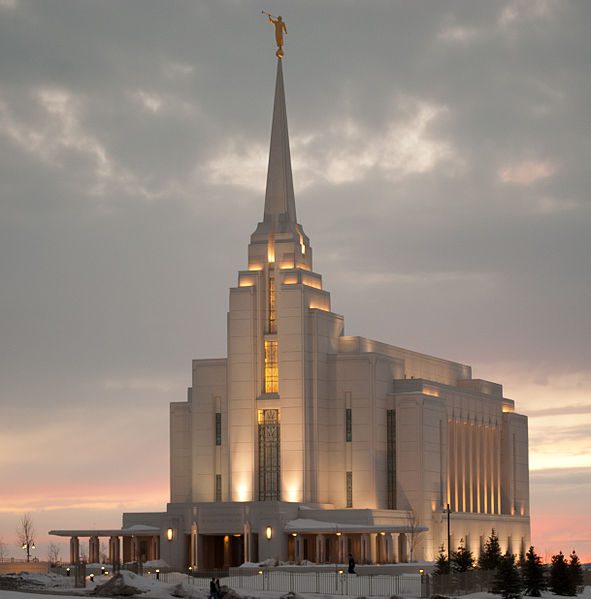
We drove up through parts of Idaho, Wyoming, and Montana today, enroute to joining up with a portion of my posterity in Alberta starting tomorrow night (if all goes according to plan). Some of the vast landscapes through which we passed were genuinely glorious. Green. With big skies, wonderful clouds, and clear air. Frequently wooded. Mountainous. Potent medicine for the soul.
My admirers at the Peterson Obsession Board will no doubt regard this trip — or, at least, pretend to regard it — as yet another shameful junket funded by naïve and abused donors to the Interpreter Foundation, but no Interpreter money has gone toward this expedition (just as no animals have been harmed while carrying it out). As a matter of fact, I’m informed by people whom I trust that other parents and grandparents besides me sometimes travel to spend time with their offspring and that, viewed in that light, this trip isn’t completely without precedent. (Somebody here please correct me if I’m mistaken on that point.) For my critics, though — and, of course, for anybody who might at some point be in or near Butte, Montana — I would like to mention that I enjoyed a pretty good Philly Cheese Steak sandwich at the Homestake Pub this evening.
Posted from Butte, Montana




